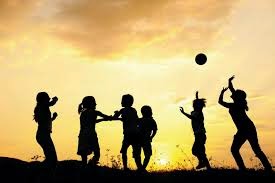About four months ago, my wife and I began attending a yoga
class on Monday nights. Once a week we bend and contort our bodies in ways that
are both surprising and often painful. Yet I look forward to each Monday
because no matter how I feel when I start class, I usually leave with a sense
of inner calm that sustains me thru much of the week.
Like most people I suspect, I began practicing yoga out of
curiosity and because I felt a need to do more stretching. So I was surprised
when on the first night, the instructor said that the only thing he wanted me
to focus on was my breathing; to put aside all thoughts of the day and focus
solely on breathing in and out of my nose. Every week he repeats this advice
several times to the class a night saying “focus first on your breathing and
secondly on your stretch.” While at times he may slightly adjust a pose I am
in, generally speaking he does not focus on form but on making sure everyone in
the class stays aware and focused on their breathing.
Through these four months this focus on breathing has taught
me something about living in the present. Like so many people I am often
tortured by decisions, actions and mistakes of my past, and worried about
challenges facing me in the future. However, in yoga, the past and future,
while still very much with me, fade into the background, and the present is all
that matters. When I focus on my breath, and I feel the agony of a particular
stretch in my muscles, it is difficult to think about the stresses of the day
or my “to-do list” for tomorrow. By design and necessity, I am right there in
the moment feeling my breath go in and out while my muscles stretch in ways
that at times can be agonizing. However, I have learned by focusing on the
breath, even the pain seems less pressing, and therefore less demanding of my
attention. So too the memories of the past and the fears of the future.
Over these four months while I have gotten a bit more
limber, what I have really gained is the gift of living in the NOW, not
allowing myself to be overwhelmed with stress, or worry or anxiety. This lesson
has followed me out of the yoga studio into other aspects of my daily life. For
instance, I have sometimes found myself in traffic slowed to a crawl, where
there is nothing I can do to move faster. Instead of getting frustrated, I have
tried on those few occasions to focus on my breath and just be in the moment,
knowing that eventually traffic will start moving and I will get to my
destination when I get there.
This process also informed a particularly strenuous bike
ride I made a few weeks ago. My tendency has been when I come to a hill to
attack it, giving it my all, pushing myself to the top; usually I arrive out of
breath and exhausted. However, on this particular ride I came to a rather steep
hill that was over a mile long, and it was clear very quickly that if I tried
to attack this hill I would never make it. So I remembered my yoga training,
focused on my breathing and concentrated only on the 10-20 yards in front of
me. The pain in my legs was agonizing, but by focusing on the breath the pain was
not overwhelming (I kept telling myself: “I have felt much more pain in yoga
class!"), and sooner than I realized I was on the peak of the hill. By taking the
hill in small bits focusing on what was in front of me, I made the long climb.
In the more mundane things of my everyday life, I find
myself resisting the temptation to stray from the present. The past cannot be
changed and the future is still out of reach. All I have control of is what is
right in front of me. Surely what I do in the NOW might undo the pain of the
past or prepare me for the challenge of the future, but what I control is the
present; so that is where my focus must be.
For me this practice of living in the present in no way is an
escape from responsibility or caring about the world around me, but actually is
a way of being more available to the people in my life and issues in my world. I
am still aware of needs with my extended family, my adult children and my wife.
I am extremely aware of the challenges facing me on my job. As I write this, I
am inwardly sickened by the continuing financial crisis facing the Philadelphia
School District. The Hamas-Israeli war in Gaza, the tragic deaths of the
airliner in Ukraine, and the continuing suffering in so many places around the
world deeply sadden me. Like so many people I could feel powerless to do
anything; however I have instead chosen to make myself present in whatever way
possible to the people in my life and issues before me. The people in my life
and the world-at-large do not need my anxiety, stressing out, and sadness, but they
may be helped by my presence and my focused concern.
Every Monday night you will find me at the yoga studio,
focusing on my breathing, learning how to be in the present. The yoga poses are
not nearly as difficult nor as painful as they were at first, yet I continue to
be stretched physically, emotionally and spiritually by the experience.
Hopefully, as I continue the practice of yoga, I will be better able to be
there in the moment with the people I care about and that concerns that tear at
my heart; at least that is my desire.











